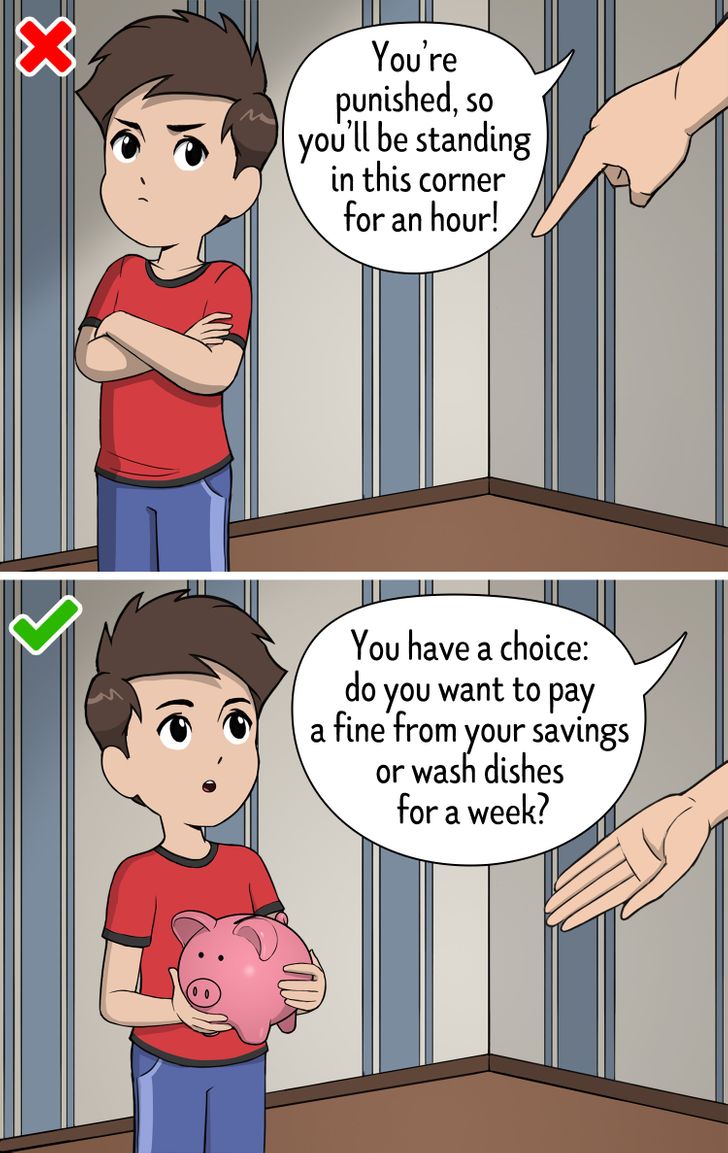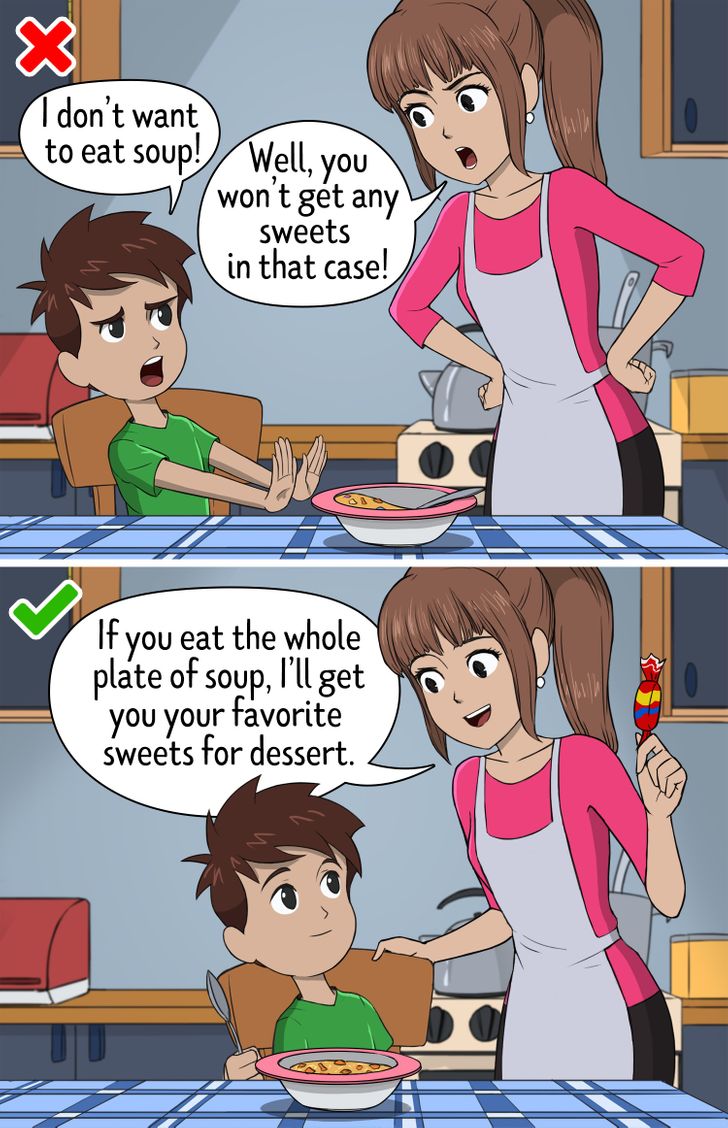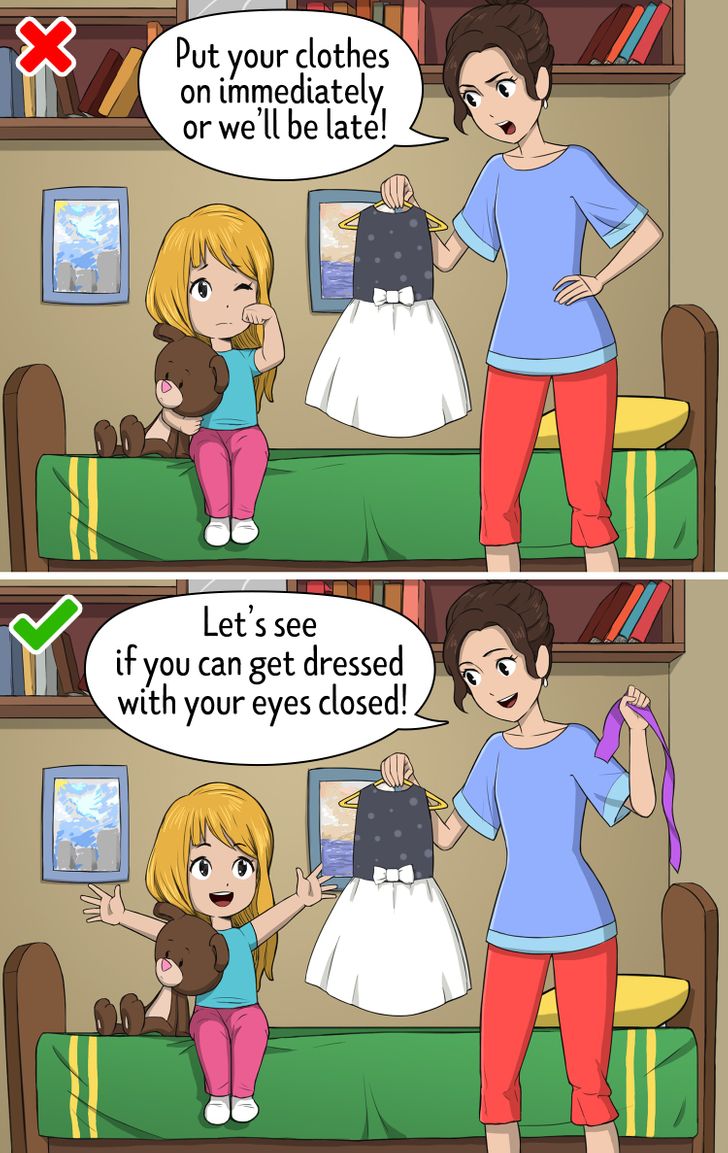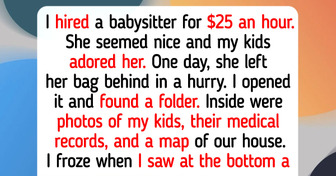My Boyfriend Proposed to Me, but He Suddenly Had a Change of Heart


It goes without saying that you need to find a unique approach to raising every child, but there are some common golden rules that will help you connect with even the most disobedient kid. Paul Raeburn and Kevin Zollman in their work "The Theory of Games for Parents" argue that the classic strategy of game theory will help teach children to come to fair agreements on their own, make them more obedient, and help them to build friendly relationships with their parents.
Bright Side found some advice that will help parents deal with even the most stubborn children through playing together.

Every parent has probably faced a situation where their child stopped in the middle of the street, refused to hold their parent's hand, and basically just wouldn't budge.
To convince them to continue your walk, try to switch roles with them. Let the child play the role of the parent and you'll see that they'll immediately get into the game and become more obedient.

What should you do if your child misbehaved but isn't ready to face the punishment? Talk to them as an adult, explain why they are guilty, and why they're going to be punished. You can make a business proposal: for example, suggest that the child either pay a fine from their piggy bank, or wash dishes for a week. Let them have the right to choose, even when they makes mistakes.
Please, keep in mind that emotional abuse is never the right way out. So instead of making your child stand in the corner for a long time thinking about their behavior, try to communicate and figure out together how their mistake can be fixed.

If a child refuses to eat lunch, but wants their favorite sweets instead, offer them dessert as a prize for finishing. This tip works extremely well if your kid is competitive, so they'll put all their effort into eating lunch in a hurry, just to enjoy the sweet prize afterward.
Don't be judgemental and try to find compromises. Children are more likely to cooperate if you offer them a good deal.

Try to set an example. When parents are too busy in the morning and the child has to have breakfast by themselves, it's no wonder that they might leave most of the food on their plate. If they refuse to have breakfast, keep them company. To have more fun, suggest they count how many spoons of cereal are left. Doing this, you can be sure that they won't even notice how they ate the whole bowl!

It's easier to avoid disputes by solving them "while playing." If they refuse to get dressed, try a game: see if they can put their clothes on blindfolded! Children love to play, so it's extremely likely that by playing, the process will go much faster with no conflicts.
Do you know any good parenting tips? Share with us in the comments!











